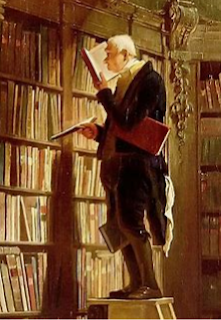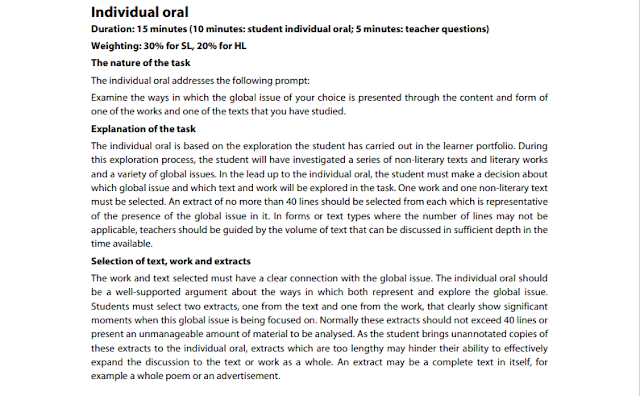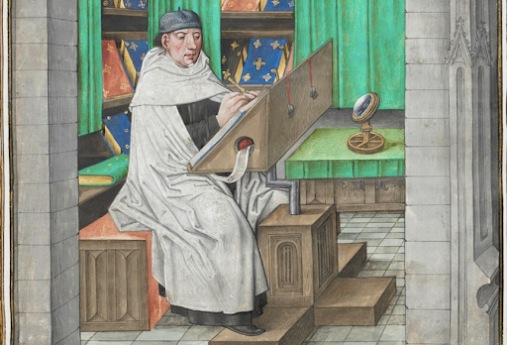English Literature A SL Year One
Welcome, one and all!
IB Exam Walk-Through
COURSE READINGS:
- How does their experience of the First World War vary among these letter writers?
- What training was carried out before they were sent to fight?
- How did the men feel about their experience of training?
- What can be found out about tactics/weapons/equipment used in combat?
- Do you get a sense of what these soldiers miss from home? Is this unsurprising/shocking?
- Describe conditions for those in the trenches on Western Front.
- What were conditions like for those who were sent to the Dardanelles?
- Can you get a sense of the experience of those who fought in Greece, India or Egypt, East Africa?
- How was the treatment of the sick or injured organized at home and abroad?
- Is there evidence of what the men thought of those whom they fought/or of their comrades?
- Do any soldiers give their opinion about the war?
- Do you think these men are typical of those who went to war?
- Can we find out anything about the characters of the men who fought from these letters?
- Have you found anybody who has written more than once, or spot any links between the letters which highlight particular friendships?
- Considering who the soldiers are writing to, can you explain if this has influenced the tone or style of the letters? Give examples.
- Is it clear if any details have been left out/put in for particular reasons?
- Can you discover a difference between what is being said and how it is being said in any of the letters?
https://www.youtube.com/watch?v=ZEIRmEkWIpA
When Published: 1954
Literary Period: Post-war fiction
Related Literary Works: Adventure stories such as Robinson Crusoe and Swiss Family Robinson depict people who are stranded on deserted islands transforming and civilizing nature. Lord of the Flies subverts the genre. It shows boys stranded on an island who try to civilize nature, but instead descend into savagery. While other adventure novels supporthe idea that man is inherently civilized, Lord of the Flies uses the genre to suggest exactly the opposite.
Related Historical Events: World War II influenced the themes and setting of Lord of the Flies. The war changed the way people in general and William Golding in particular viewed the world. World War I was for many years called the War to End All Wars. World War II proved that idea wrong and created a new sense that people are inherently warlike, power hungry, and savage. While the world war raging in Lord of the Flies is not World War II, it can be viewed as Golding's version of World War III. Only a few brief references to the war outside the boys' island appear in the novel, but references to an atom bomb blowing up an airport and the "Reds" make it clear that the war involves nuclear weapons and places capitalist allies including the British against the communist "Reds."1
Themes:
HUMAN NATURE
William Golding once said that in writing Lord of the Flies he aimed to trace society's flaws back to their source in human nature. By leaving a group of English schoolboys to fend for themselves on a remote jungle island, Golding creates a kind of human nature laboratory in order to examine what happens when the constraints of civilization vanish and raw human nature takes over. In Lord of the Flies, Golding argues that
human nature, free from the constraints of society, draws people away from reason toward savagery.
The makeshift civilization the boys form in Lord of the Flies collapses under the weight of their innate savagery: rather than follow rules and work hard, they pursue fun, succumb to fear, and fall to violence. Golding's underlying argument is that human beings are savage by nature, and are moved by primal urges toward selfishness, brutality, and dominance over others. Though the boys think the beast lives in the jungle, Golding makes it clear that it lurks only in their hearts.
CIVILIZATION
Although Golding argues that people are fundamentally savage, drawn toward pleasure and violence, human beings havesuccessfully managed to create thriving civilizations for thousands of years. So that disproves Golding's theory about human nature being savage, right? Wrong. The famous psychologist Sigmund Freud argued that without the innate human capacity to repress desire, civilization would not exist. In Lord of the Flies, Golding makes a similar argument. He depicts civilization as a veil that through its rules and laws masks the evil within every individual. So even while civilizations thrive, they are merely hiding the beast. They have not destroyed it.
The Lord of the Flies is a chronicle of civilization giving way to the savagery within human nature, as boys shaped by the supremely civilized British society become savages guided only by fear, superstition, and desire. And even before the boy's become fully savage under Jack, Golding shows hints of the savage beast within society by showing Piggy's love of food, the way the boys laugh when Jack mocks Piggy, and all the boys' irrational fear of the "beast." And as the boys on the island shed civilization for savagery, the adults of the supposedly "civilized" world outside the island are engaged in a savage and brutal worldwide nuclear war.
SAVAGERY AND THE "BEAST"
The "beast" is a symbol Golding uses to represent the savage impulses lying deep within every human being. Civilization exists to suppress the beast. By keeping the natural human desire for power and violence to a minimum, civilization forces people to act responsibly and rationally, as boys like Piggy and Ralph do in Lord in the Flies. Savagery arises when civilization stops suppressing the beast: it's the beast unleashed. Savages not only acknowledge the beast, they thrive on it and worship it like a god. As Jack and his tribe become savages, they begin to believe the beast exists physically—they even leave it offerings to win its favor to ensure their protection. Civilization forces people to hide from their darkest impulses, to suppress them. Savages surrender to their darkest impulses, which they attribute to the demands of gods who require their obedience.4
SPIRITUALITY AND RELIGION
Most of the boys on the island either hide behind civilization, denying the beast's existence, or succumb to the beast's power by embracing savagery. But in Lord of the Flies, Golding presents an alternative to civilized suppression and beastly savagery. This is a life of religion and spiritual truth-seeking, in which men look into their own hearts, accept that there is a beast within, and face it squarely.
Simon occupies this role in Lord of the Flies, and in doing so he symbolizes all the great spiritual and religious men, from Jesus to Buddha to nameless mystics and shamans, who have sought to help other men accept and face the terrible fact that the beast they fear is themselves. Of all the boys, only Simon fights through his own fear to discover that the "beast" at the mountaintop is just a dead man. But when Simon returns with the news that there's no real beast, only the beast within, the other boys kill him. Not just the savages, not just the civilized boys—all the boys kill Simon, because all of the boys lack the courage Simon displayed in facing the beast.
THE WEAK AND THE STRONG
Within the larger battle of civilization and savagery ravaging the boys's community on the island, Lord of the Flies also depicts in great detail the relationships and power dynamics between the boys. In particular, the novel shows how boys fight to belong and be respected by the other boys. The main way in which the boys seek this belonging and respect is to appear strong and powerful. And in order to appear strong and powerful, boys give in to the savage instinct to ignore, pick on, mock, or even physically abuse boys who are weaker than them. Over and over, Lord of the Flies shows instances where a boy who feels vulnerable will save himself by picking on a weaker boy.
Course Pack Handout (in class). Please answer the questions for homework in your notebooks after reading each chapter.
FILM VERSION: https://www.blogger.com/blog/post/edit/1506360793711355565/2150270256809630076#
Essay by Harold Bloom:
https://1.cdn.edl.io/DCZIfXm4z8XvzcRiCqTQbpSIBE3zLa6rhs0IuJCTkigqTLD9.pdf
___________________________________________________________________________
ORAL EXAM PRACTICE
_____________________________________________________________________
Semester Two (Part Two)
FULL TEXT:
STUDY GUIDE:
FILM VERSION:
https://www.youtube.com/watch?v=izX5dIzI2RE
Camus:
https://drive.google.com/file/d/16d0Dc-q6EKOQfD0xuBfUS8MGIlDRhVMq/view?usp=sharing
Sartre:
https://drive.google.com/file/d/1HzotVmHWcvcLqPEhkGszFeA8W8YPFyiT/view?usp=sharing
The Stranger: Camus
https://ia904708.us.archive.org/20/items/CamusAlbertTheStranger/CamusAlbert-TheStranger.pdf
Biography:
https://slideplayer.com/slide/17274315/
Introduction to Absurdism:
https://www.youtube.com/watch?v=Jv79l1b-eoI
Article: Nihilism, Existentialism, and Absurdism:
https://thelivingphilosophy.substack.com/p/nihilism-vs-existentialism-vs-absurdism
Course Pack:
(In Class Handout)
https://www.teachercomp.com/the-stranger-teaching-resources
Discussion Questions
Conrad: An Outpost of Progress (Parts I and II)
https://corpustools.byu.edu/vsfp-old/vsfpwiki.byu.edu/index.php/An_Outpost_of_Progress.html
Maupassant: The Jewelry
http://eng102-610.blogspot.com/2013/09/the-jewelry-1-by-guy-de-maupassant.html
The Necklace
https://faculty.ksu.edu.sa/sites/default/files/the_diamond_necklace.pdf
_____________________________________________________________________________________
The Metamorphosis (1915)
Franz Kafka
The Metamorphosis and Other Stories
https://drive.google.com/file/d/1-jFdfMFsjFlQRog6b97nFWjUsmhCuYBS/view?usp=sharing
Biography:
http://www.kafka.org/index.php?biography
https://www.youtube.com/watch?v=KTtvPSTG3YE
Themes:
https://literarydevices.net/the-metamorphosis-themes/
Course Pack:
https://drive.google.com/file/d/1c1a520Wz7bIgBtjp0CbFz9OZTP6eZ_dT/view?usp=share_link
- Does “The Judgment” strike you as a story that was written in one impassioned sitting? Are there any times when it doesn’t follow Kaka’s standards of “coherence” and “opening out”—times when Kafka’s writing is reserved or puzzling, for instance?
- Who or what, from the real world, is Kafka criticizing in “The Judgment”? His father? Family values? Capitalism? Himself? Or do you read “The Judgment” as a story that, instead of aiming at a specific satiric target, simply aims to shock and entertain its readers?
- How would you sum up the way Georg feels about his father? The way his father feels about him? Are there any facts you don’t know, but that could change your views on this question if you did know them?
- Did you find “The Judgment” mostly disturbing or mostly humorous? Are there any times when Kafka manages to be disturbing and humorous at the same moment?

















Comments
Post a Comment